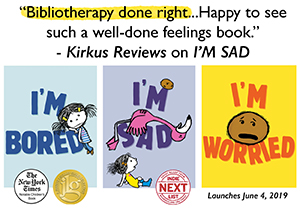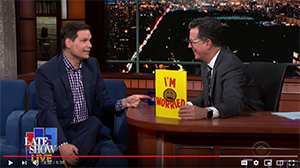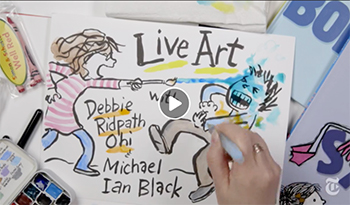Monday
Apr232007
How can I become the sort of performer that musicians want to accompany?
Posted on  Monday, April 23, 2007 at 6:17PM
Monday, April 23, 2007 at 6:17PM
 Monday, April 23, 2007 at 6:17PM
Monday, April 23, 2007 at 6:17PM
"I want to be the sort of performer that others can and want to play along with. What skills do I need to have/polish that will make it easier for other musicians to accompany me? Are countless hours fumbling through Irish sessions and filk jams/preserves the only way to get there?"
Margaret Middleton:
"Probably the main thing that would help other musicians play along with you is if you know what key you’re playing in. For a guitarist using a capo, this requires a bit of concentration, but it is worth it.
The next thing would be to be able to play in consistent time, including the pauses between verses. I can nudge someone to stay in the key they began in, if they are singing a-capella, but inconsistent timekeeping will provoke me to fling up my hands in despair very quickly."
Gary McGath:
"Assuming you have adequate basic musical skills and can stay on key, the main thing is to be able to play/sing and listen at the same time. This takes work, but not a professional commitment.
Too many people, when they’re performing with a group, try not to listen to others performing different parts because it throws them off. It’s necessary to develop a kind of stereo musical thinking, where you know at the same time what you’re doing, what the other person is doing, and how they fit together. Practicing against a recording is one way to work on this until you feel confident enough to do it with your group."
blind lemming chiffon:
"Ditto on (1) rhythm and (2) key. It’s also good to have knowledge of a few of the common chord progressions. The only thing I’d add is developing an understanding of when to “hang back” which where I come from means playing soft chords or another rhythm part while someone else sings or does an instrumental solo. It’s important not to drown out or overshadow and to get a sense of who the spotlight is on - and if you’re going to play on stage with someone, if time allows do at least a little bit of rehearsing and work out what the parts are and who gets a solo when."
Cat Faber:
"Both Margaret and Gary have good points. I would add another, that’s good for basic performance skills but particularly important for playing with people
Learn to be able to make a mistake and get back on the piece as it’s flowing. People playing with you will appreciate not having to stop for you, and you can learn to use what they’re playing as a way to help you play through mistakes without losing your timing.
Playing along with recorded music might be a way to practice this on your own."
Mich:
"I like the contributions so far! I’m not sure of the context of the question, but I can offer another point of view by describing what, as an piano accompanist, I value in a soloist who wants me to accompany them!
For me, a crucial skill that a performer should have to make me want to accompany them (rather than politely decline) is bizarrely not a musical one but the ability to organise themselves and to know what they need from the accompanist!
A really helpful performer will:
* contact me a goodly period of time before the performance (YMMV, but generally the harder it’s likely to be, the more time I’d like to have as I’m not a confident sight-reader) and ask if I can do it. Asking (rather than assuming) is important, especially in filk where we’re all doing it for love.
* give me sheet music, or chords+lyrics+recording. If you just give me a recording without chords and lyrics I will have to work them out from scratch so I’ll need more chocolate, I mean time!
Unless there’s a really good reason why it’s easier for me to get hold of it, please don’t ask me to try to find the sheet music/recording on your behalf; it’s not fair! I may be accompanying a number of people.
Also, tell me if there are any radical differences between the version you plan to sing and the version you’ve given me.
* let me know when the set is!
* if you’re not used to having a live accompanist (and, in an ideal world, even if you are!) please do arrange a time with me to practise, especially as the sheet music version of your piece may not be the same as the recording that you’ve been practising with…which leads me to…
* please practise your piece! The most soul-destroying thing for me is to take ages learning an accompaniment so I can do the best I can for you and then find on the day that you haven’t practised your part.
I hope none of this sounds harsh; I wouldn’t accompany people if I didn’t enjoy supporting them so they can make great music!
Mich x"
Comments? Suggestions? Please post below:
Margaret Middleton:
"Probably the main thing that would help other musicians play along with you is if you know what key you’re playing in. For a guitarist using a capo, this requires a bit of concentration, but it is worth it.
The next thing would be to be able to play in consistent time, including the pauses between verses. I can nudge someone to stay in the key they began in, if they are singing a-capella, but inconsistent timekeeping will provoke me to fling up my hands in despair very quickly."
Gary McGath:
"Assuming you have adequate basic musical skills and can stay on key, the main thing is to be able to play/sing and listen at the same time. This takes work, but not a professional commitment.
Too many people, when they’re performing with a group, try not to listen to others performing different parts because it throws them off. It’s necessary to develop a kind of stereo musical thinking, where you know at the same time what you’re doing, what the other person is doing, and how they fit together. Practicing against a recording is one way to work on this until you feel confident enough to do it with your group."
blind lemming chiffon:
"Ditto on (1) rhythm and (2) key. It’s also good to have knowledge of a few of the common chord progressions. The only thing I’d add is developing an understanding of when to “hang back” which where I come from means playing soft chords or another rhythm part while someone else sings or does an instrumental solo. It’s important not to drown out or overshadow and to get a sense of who the spotlight is on - and if you’re going to play on stage with someone, if time allows do at least a little bit of rehearsing and work out what the parts are and who gets a solo when."
Cat Faber:
"Both Margaret and Gary have good points. I would add another, that’s good for basic performance skills but particularly important for playing with people
Learn to be able to make a mistake and get back on the piece as it’s flowing. People playing with you will appreciate not having to stop for you, and you can learn to use what they’re playing as a way to help you play through mistakes without losing your timing.
Playing along with recorded music might be a way to practice this on your own."
Mich:
"I like the contributions so far! I’m not sure of the context of the question, but I can offer another point of view by describing what, as an piano accompanist, I value in a soloist who wants me to accompany them!
For me, a crucial skill that a performer should have to make me want to accompany them (rather than politely decline) is bizarrely not a musical one but the ability to organise themselves and to know what they need from the accompanist!
A really helpful performer will:
* contact me a goodly period of time before the performance (YMMV, but generally the harder it’s likely to be, the more time I’d like to have as I’m not a confident sight-reader) and ask if I can do it. Asking (rather than assuming) is important, especially in filk where we’re all doing it for love.
* give me sheet music, or chords+lyrics+recording. If you just give me a recording without chords and lyrics I will have to work them out from scratch so I’ll need more chocolate, I mean time!
Unless there’s a really good reason why it’s easier for me to get hold of it, please don’t ask me to try to find the sheet music/recording on your behalf; it’s not fair! I may be accompanying a number of people.
Also, tell me if there are any radical differences between the version you plan to sing and the version you’ve given me.
* let me know when the set is!
* if you’re not used to having a live accompanist (and, in an ideal world, even if you are!) please do arrange a time with me to practise, especially as the sheet music version of your piece may not be the same as the recording that you’ve been practising with…which leads me to…
* please practise your piece! The most soul-destroying thing for me is to take ages learning an accompaniment so I can do the best I can for you and then find on the day that you haven’t practised your part.
I hope none of this sounds harsh; I wouldn’t accompany people if I didn’t enjoy supporting them so they can make great music!
Mich x"
Comments? Suggestions? Please post below:
in  Performance
Performance
 Performance
Performance 








Reader Comments (5)
Probably the main thing that would help other musicians play along with you is if you know what key you're playing in. For a guitarist using a capo, this requires a bit of concentration, but it is worth it.
The next thing would be to be able to play in consistent time, including the pauses between verses. I can nudge someone to stay in the key they began in, if they are singing a-capella, but inconsistent timekeeping will provoke me to fling up my hands in despair very quickly.
Assuming you have adequate basic musical skills and can stay on key, the main thing is to be able to play/sing and listen at the same time. This takes work, but not a professional commitment.
Too many people, when they're performing with a group, try not to listen to others performing different parts because it throws them off. It's necessary to develop a kind of stereo musical thinking, where you know at the same time what you're doing, what the other person is doing, and how they fit together. Practicing against a recording is one way to work on this until you feel confident enough to do it with your group.
Ditto on (1) rhythm and (2) key. It's also good to have knowledge of a few of the common chord progressions. The only thing I'd add is developing an understanding of when to "hang back" which where I come from means playing soft chords or another rhythm part while someone else sings or does an instrumental solo. It's important not to drown out or overshadow and to get a sense of who the spotlight is on - and if you're going to play on stage with someone, if time allows do at least a little bit of rehearsing and work out what the parts are and who gets a solo when.
Both Margaret and Gary have good points. I would add another, that's good for basic performance skills but particularly important for playing with people
Learn to be able to make a mistake and get back on the piece as it's flowing. People playing with you will appreciate not having to stop for you, and you can learn to use what they're playing as a way to help you play through mistakes without losing your timing.
Playing along with recorded music might be a way to practice this on your own.
I like the contributions so far! I'm not sure of the context of the question, but I can offer another point of view by describing what, as an piano accompanist, I value in a soloist who wants me to accompany them!
For me, a crucial skill that a performer should have to make me want to accompany them (rather than politely decline) is bizarrely not a musical one but the ability to organise themselves and to know what they need from the accompanist!
A really helpful performer will:
* contact me a goodly period of time before the performance (YMMV, but generally the harder it's likely to be, the more time I'd like to have as I'm not a confident sight-reader) and ask if I can do it. Asking (rather than assuming) is important, especially in filk where we're all doing it for love.
* give me sheet music, or chords+lyrics+recording. If you just give me a recording without chords and lyrics I will have to work them out from scratch so I'll need more chocolate, I mean time!
Unless there's a really good reason why it's easier for me to get hold of it, please don't ask me to try to find the sheet music/recording on your behalf; it's not fair! I may be accompanying a number of people.
Also, tell me if there are any radical differences between the version you plan to sing and the version you've given me.
* let me know when the set is!
* if you're not used to having a live accompanist (and, in an ideal world, even if you are!) please do arrange a time with me to practise, especially as the sheet music version of your piece may not be the same as the recording that you've been practising with...which leads me to...
* please practise your piece! The most soul-destroying thing for me is to take ages learning an accompaniment so I can do the best I can for you and then find on the day that you haven't practised your part.
I hope none of this sounds harsh; I wouldn't accompany people if I didn't enjoy supporting them so they can make great music!
Mich x